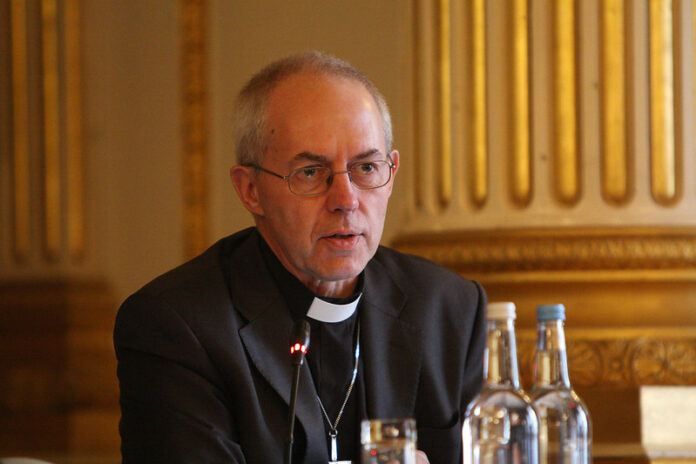FOR SOME of us of the ‘middling sort’ brought up in the tradition of ‘Via Media’, the classic Anglican ‘middle way’, composed of Catholic and Reformed, the good old Church of England muddled along in our lives. Like a genial elderly relative it was always present in national life, generous to those who disagreed with it but reiterating its position as the national church in England with the Archbishop of Canterbury as ‘primus inter pares’, first among equals, of the worldwide Anglican Communion.
The archbishops officiated at state occasions and popped up in the media, spouting mostly left-wing opinions but remaining symbols of continuity back to 1533 when Henry VIII severed links with Rome and created the Church of England ‘in one fell swoop’, as Roy Strong put it.
The 19th-century essayist Thomas Carlyle considered the Protestant Reformation the beginning of a new stage of human development connected to the people’s moral and religious destiny. Things haven’t quite worked out that way. Now that the 105th Archbishop of Canterbury, Justin Welby, has been forced to fall on his sword for failing to show moral leadership as the Church covered up its worst ever abuse scandal, many are wondering (not for the first time) what is the point of the national church at all?
In an increasingly secular society including many differing religious affiliations, it has become essential to affirm the core values of sound leadership, of integrity, respect and empathy for others, whilst defending and promoting the Christian heritage of the nation. Unfortunately, the church under Dr Welby’s leadership drifted away from these fundamentals for fear of offending non-Christians.
Too often the Church was indistinguishable from the prevailing woke relativism, preferring to embroil itself in the identity politics of the Guardian newspaper at prayer. Whether wringing its hands over climate change, trying to lead where nobody else seems to be following, and insisting that mediaeval buildings comply with the loopy ‘green’ policies of the Energy Secretary, Ed Miliband – as if a few ancient buildings dotted around England will contribute to a reduction in climate emissions – from closing churches during the pandemic to now pleading poverty, unable to fund parishes, the bedrock of English Anglicanism, leaving them to fend for themselves or go under, but miraculously finding millions to fund the ‘slavery reparations’ racket.
The hierarchy pursued a managerial, top-down, centralised, bulging bureaucracy, suffused with red tape and the trappings of a multi-corporation. Finding itself with depleted congregations and plummeting clergy numbers, the top-heavy hierarchy appears to view ordinary churchgoers as the ‘wrong sort of Anglicans’. I have news for them: some of them are the ‘wrong sort of clerics’. It would be interesting to know just how many of the 42 bishops have served as parish priests.
Now the Church has lost all vestiges of moral authority, a situation made all the worse by the failure to follow its own safeguarding measures. Read it all in The Conservative Woman



